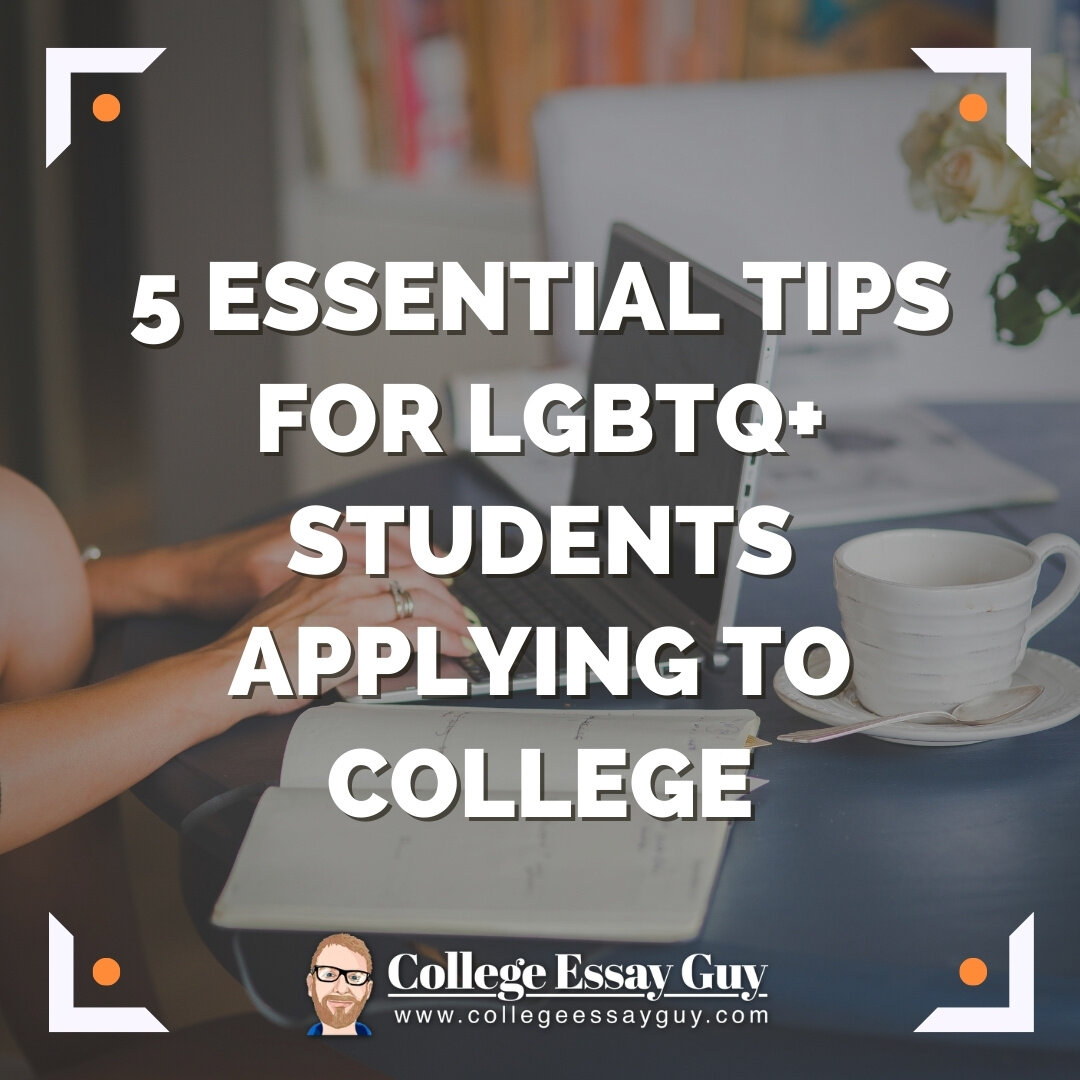Special Thanks to Charlotte West for writing this post.
Click here for scholarships and great resources for LGBTQ+ students.
Click here for 50+ LGBTQ Resources for Students and Their Counselors, including:
An Ally's Guide to Terminology + Intersectionality 101
(Re)considering the Role "Familismo" Plays in Latinx High School Students' College Choices
Top Scholarships for LGBTQ Students
Minding Your P's and Q's to Choose Your Perfect LGBTQ Campus + Campus Visit Score Card
Unjust: How the Broken Criminal Justice System Fails LGBTQ People
Trans Policy Clearinghouse
HRC 2018 LGBTQ Youth Report
As if it wasn’t hard enough to find a college that’s the right fit for your academic and personal interests, you might have additional questions about finding an inclusive campus if you identify as LGBTQ+. You might be wondering about everything from housing options to whether or not you should come out in your personal statement.
A good place to begin is by checking out Campus Pride, a non-profit working to create safer college environments for LGBTQ+ students. They publish the Campus Pride Index, a national list of LGBTQ-friendly colleges and universities. They also run the HBCU LGBTQ Clearinghouse, which reviews LGBTQ-inclusive policies, programs, and practices at Historically Black Colleges and Universities. The Trans Policy Clearinghouse landing page has a list of resources where you can find which women’s colleges welcome transgender students. You can also see which schools provide options to live in gender-inclusive housing, schools that allow students to change their name and gender on campus records, those that cover transition-related medical expenses under student health insurance, and women’s colleges that welcome transgender students.
Campus Pride also maintains a Shame List, which identifies the “absolute worst campuses for LGBTQ youth” in the United States. The colleges and universities on the Shame List openly discriminate against LGBTQ+ youth or have a track record of anti-LGBTQ+ actions, programs, and practices.
Be sure to also check out an institution’s website and to reach out to college reps if you can’t find answers to your questions. “Perhaps the most helpful question is the direct one,” says Wes Waggoner, Associate Vice President for Enrollment Management at Southern Methodist University (SMU). “Ask: ‘What resources and opportunities does this university have that particularly support LGBTQ+ students?’” Waggoner also suggests asking the admissions office to put you in touch with a current student who identifies as LGBTQ+ to ask about life on campus. SMU, for instance, has a resource center and a student senator dedicated to representing LGBTQ students.
Andrew Moe, Associate Dean of Admissions at Swarthmore, agrees. “While students should view an institution’s website and publications to ensure LGBTQ+ students and community are represented and celebrated, they should also ask tough questions,” says Moe. “That’s our job–to answer questions of prospective students and families, so use us as a resource.”
5 Tips for LGBTQ+Students When Applying to College
1. The details matter
Check whether university representatives include their pronouns in their email signatures. “If you do a campus visit, look for posters advertising organizations and events oriented towards LGBTQ+ students,” says Kaelie Lund, assistant dean of admissions at Carleton College. “If the school has an office dedicated to supporting queer students, see if it is student-run or if paid staff members oversee that office. That can give you additional insight into how the school you are interested in supports queer students,” she says.
2. Thoroughly dig through the university’s website, starting with its anti-discrimination statement
“Find out: Does the school’s nondiscrimination policy include sexual orientation and gender identity?” asks Wagonner. “This is a good first check. Does the campus have an active LGBTQ+ student group? Does that group sponsor events for LGBTQ+ students? Is there an LGBTQ+ resource center on campus?”
3. Ask about housing options and living-learning communities for LGBTQ+ students
Some universities have gender-neutral, gender-inclusive, or all-gender residence halls. University of California Santa Cruz (UCSC) has trans-inclusive housing for transgender and gender-nonconforming students. UC Berkeley offers a living-learning community called Unity House welcoming students who identify as LGBTQ+. Residents also take an academic seminar together organized by the Gender Studies Department. Many other universities offer similar options.
4. Look for scholarships specific to LGBTQ+ students
Campus Pride has a national database of scholarships for LGBTQ+ students. The Point Foundation offers scholarships for community college and university students who identify as LGBTQ+. If your parents are unwilling to support you because of your sexual orientation or gender expression, talk to the financial aid office about what options are available. “I recommend students open a dialogue with admissions and financial aid officers to ensure they know their options if family members are less than supportive,” Moe says.
5. Whether or not you write about your sexual orientation or gender expression in your college essay is a highly personal decision
You might not be ready to share something so personal, and that’s OK. It can also be a powerful experience to use your personal statement as an opportunity to process and reflect. As is the case for all students, the most helpful essays are ones in which you communicate what is important to you (yup, your values!) and how they will contribute to a campus community. “Students should not feel like they have to talk about their sexual orientation or gender identity in the main essay,” says Waggoner, “but it can be powerful if done well.”








